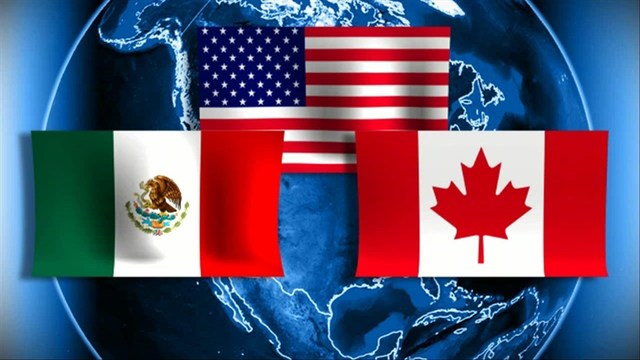

Share
Leaders of major industrial unions, and their allies in the war against job-losing “free trade” treaties, reacted skeptically to Trump administration negotiating objectives for a “new NAFTA.”
They said the objectives contain pro-corporate provisions lifted wholesale from the now-dead Trans-Pacific Partnership free trade pact, which unions, their allies and congressional Democrats forced the Obama administration to dump last year. And the objectives are weak in other areas, the leaders added.
U.S. Trade Representative Robert Lighthizer released the objectives on July 17, so talks with Mexico and Canada on a “new NAFTA” can actually start in two months or so.
Lighthizer emphasized the new NAFTA’s presumed benefits to business, but also included several top labor goals. Among them are:
- Writing worker rights into the texts of trade pacts.
- Requiring the U.S., Canada and Mexico to follow some internationally recognized “core labor standards,” including freedom of association and collective bargaining, and
- Killing the pro-business trade court, called the Investor State Dispute System.
However, other labor goals are notably absent. One omission: A strong domestic content requirement – a specific percentage of U.S.-made goods – for cars and trucks, which the Auto Workers demand. Another absence: Restrictions on unsafe Mexican trucks and unqualified Mexican drivers roaming all U.S. roads, endangering U.S. truckers and safety.
The Teamsters have fought for such restrictions starting before Congress passed NAFTA, 23 years ago.
Lighthizer said the objectives included decisions based on three days of public hearings – where the Teamsters, the AFL-CIO and the Auto Workers interrupted a constant stream of corporate witnesses – and 14,000 written comments.
“Under these objectives, a new NAFTA will give our farmers, ranchers, service providers, and other businesses new opportunities to grow their exports and reclaim American prosperity. But most importantly, the new NAFTA will promote a market system that functions more efficiently, leading to reciprocal and balanced trade among the parties,” he says. His objectives don’t mention worker rights in their introduction.
That pro-corporate tilt prompted criticism from Steel Workers President Leo Gerard, Machinists President Bob Martinez, Public Citizen’s Trade Watch Executive Director Lori Wallach and others.
“The USTR seems to be backing the same priorities that have guided trade agreements since NAFTA was first negotiated, promoting corporate interests and leaving workers behind,” Gerard said.
“This is not what workers who supported President Trump in the election expected: They assumed that he would renegotiate NAFTA to create better paying jobs for them and their families, rather than chasing higher profits and greater protections for corporate interests.”
“Any renegotiation that starts off with the current trade template found in TPP is unacceptable,” Martinez stated. “Labor provisions, rules of origin and many other provisions in TPP fall far short of the substantive changes that need to be made for trade agreements to begin benefiting working families.
“These provisions must be changed so multinational corporations cannot continue to profit from the advantages of a trade agreement while workers suffer stagnated wages and economic insecurity” while companies move U.S. factory jobs “to countries that do not respect fundamental human rights,” he declared.
Wallach said, “This document does not describe the promised transformation of NAFTA to prioritize working people that some voters were expecting based on President Trump’s campaign pledges.”

